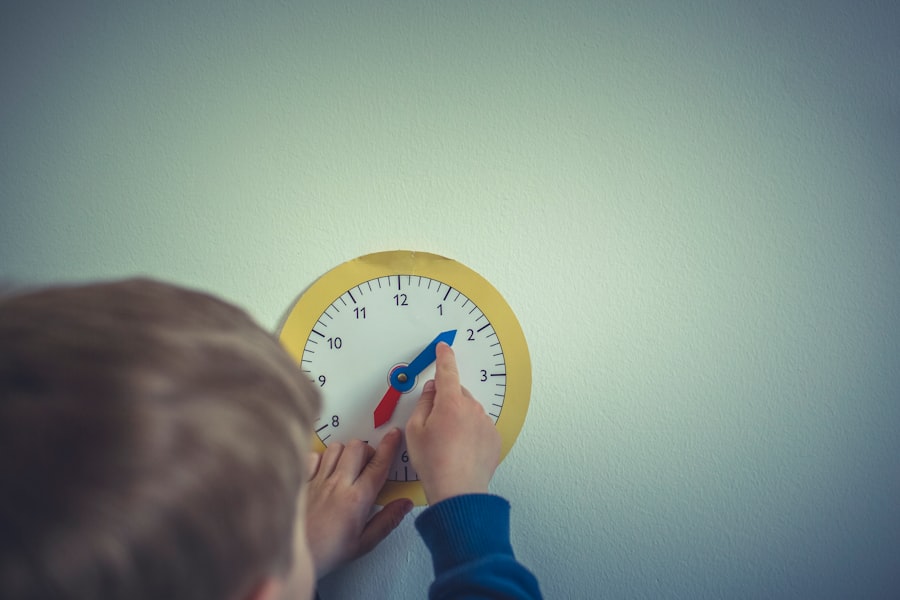Mouth breathing has been found to have a significant connection to ADHD. Research has shown that children who breathe through their mouths are more likely to exhibit symptoms of ADHD, such as inattention, hyperactivity, and impulsivity. This connection is thought to be due to the impact of mouth breathing on brain function and sleep quality. When children breathe through their mouths, they are not able to take in as much oxygen as they would through nasal breathing, which can lead to decreased oxygen levels in the brain. This can affect cognitive function and contribute to symptoms of ADHD. Additionally, mouth breathing can lead to poor sleep quality, which is also linked to ADHD symptoms. Understanding the connection between mouth breathing and ADHD is crucial for effectively addressing and managing symptoms in children.
Furthermore, mouth breathing can lead to chronic hyperventilation, which can alter the balance of oxygen and carbon dioxide in the body. This imbalance can affect the brain’s ability to regulate attention, behavior, and emotions, contributing to symptoms of ADHD. It is important for parents and healthcare professionals to recognize the impact of mouth breathing on ADHD symptoms and consider addressing this issue as part of a comprehensive treatment plan for children with ADHD.
Key Takeaways
- Mouth breathing may be linked to ADHD, as studies have shown a higher prevalence of mouth breathing in children with ADHD.
- Mouth breathing can affect brain function by reducing oxygen intake and altering the balance of gases in the blood, potentially impacting cognitive function and behavior.
- Mouth breathing can lead to poor sleep quality, as it can cause snoring, sleep apnea, and disrupted sleep patterns, which can exacerbate ADHD symptoms.
- Signs of mouth breathing in children with ADHD may include dry, cracked lips, open mouth posture, and frequent sniffling or congestion.
- Treating mouth breathing through techniques such as nasal breathing exercises and oral myofunctional therapy can help improve ADHD symptoms by addressing the underlying breathing pattern.
How Mouth Breathing Affects Brain Function
Mouth breathing can have a significant impact on brain function, particularly in children with ADHD. When children breathe through their mouths, they are not able to take in as much oxygen as they would through nasal breathing. This can lead to decreased oxygen levels in the brain, which can affect cognitive function and contribute to symptoms of ADHD. Additionally, chronic hyperventilation caused by mouth breathing can alter the balance of oxygen and carbon dioxide in the body, affecting the brain’s ability to regulate attention, behavior, and emotions.
Furthermore, mouth breathing can lead to poor sleep quality, which can also impact brain function. Children who breathe through their mouths during sleep may experience disruptions in their sleep patterns, leading to daytime drowsiness, irritability, and difficulty concentrating – all of which are symptoms commonly associated with ADHD. It is important for parents and healthcare professionals to understand how mouth breathing affects brain function in order to effectively address and manage ADHD symptoms in children.
The Impact of Mouth Breathing on Sleep Quality
Mouth breathing can have a significant impact on sleep quality, particularly in children with ADHD. When children breathe through their mouths during sleep, it can lead to disruptions in their sleep patterns, such as snoring, mouth breathing, and sleep apnea. These disruptions can result in poor sleep quality, leading to daytime drowsiness, irritability, and difficulty concentrating – all of which are symptoms commonly associated with ADHD. Additionally, poor sleep quality can exacerbate symptoms of ADHD, making it crucial to address mouth breathing as part of a comprehensive treatment plan for children with ADHD.
Furthermore, mouth breathing during sleep can lead to decreased oxygen levels in the body, which can affect overall health and well-being. Children who breathe through their mouths during sleep may not be getting enough oxygen, leading to fatigue and decreased cognitive function during the day. It is important for parents and healthcare professionals to recognize the impact of mouth breathing on sleep quality and consider addressing this issue in order to improve overall health and well-being in children with ADHD.
Recognizing the Signs of Mouth Breathing in Children with ADHD
| Signs of Mouth Breathing in Children with ADHD | Percentage of Children |
|---|---|
| Loud or frequent snoring | 60% |
| Open mouth posture during the day | 45% |
| Chronic nasal congestion | 30% |
| Enlarged tonsils or adenoids | 25% |
| Restless sleep or frequent awakenings | 20% |
Recognizing the signs of mouth breathing in children with ADHD is crucial for effectively addressing and managing symptoms. Some common signs of mouth breathing include open-mouth posture, dry or cracked lips, bad breath, snoring, and frequent respiratory infections. Additionally, children who breathe through their mouths may exhibit symptoms such as inattention, hyperactivity, and impulsivity – all of which are commonly associated with ADHD. It is important for parents and healthcare professionals to be aware of these signs and consider addressing mouth breathing as part of a comprehensive treatment plan for children with ADHD.
Furthermore, parents may notice that their child has difficulty breathing through their nose or frequently complains of nasal congestion. These signs may indicate that the child is relying on mouth breathing as their primary method of respiration. By recognizing these signs early on, parents and healthcare professionals can take steps to address mouth breathing and improve overall health and well-being in children with ADHD.
Treating Mouth Breathing to Improve ADHD Symptoms
Treating mouth breathing is an important aspect of improving ADHD symptoms in children. One approach to addressing mouth breathing is through nasal breathing exercises and techniques. By encouraging children to breathe through their noses, parents and healthcare professionals can help improve oxygen levels in the body and brain, leading to improved cognitive function and reduced symptoms of ADHD. Additionally, addressing any underlying issues such as allergies or sinus problems can help improve nasal breathing and reduce reliance on mouth breathing.
Furthermore, addressing any structural issues that may be contributing to mouth breathing, such as enlarged tonsils or adenoids, can also help improve respiratory function and reduce symptoms of ADHD. In some cases, surgical intervention may be necessary to address these structural issues. It is important for parents and healthcare professionals to work together to develop a comprehensive treatment plan that addresses both the underlying causes of mouth breathing and the symptoms of ADHD in children.
The Role of Oral Myofunctional Therapy in Addressing Mouth Breathing

Oral myofunctional therapy is a specialized form of therapy that focuses on improving oral muscle function and coordination. This type of therapy can be particularly beneficial for addressing mouth breathing in children with ADHD. By targeting the muscles involved in breathing, swallowing, and speaking, oral myofunctional therapy can help improve respiratory function and reduce reliance on mouth breathing. Additionally, this type of therapy can help improve overall oral health and well-being in children with ADHD.
Furthermore, oral myofunctional therapy can help address any underlying issues that may be contributing to mouth breathing, such as tongue tie or improper oral posture. By working with a trained therapist, children can learn exercises and techniques to improve muscle function and coordination, leading to improved respiratory function and reduced symptoms of ADHD. It is important for parents and healthcare professionals to consider oral myofunctional therapy as part of a comprehensive treatment plan for children with ADHD who experience mouth breathing.
Tips for Managing Mouth Breathing and ADHD Symptoms
Managing mouth breathing and ADHD symptoms requires a comprehensive approach that addresses both the underlying causes of mouth breathing and the symptoms of ADHD. Some tips for managing mouth breathing and ADHD symptoms include encouraging nasal breathing through exercises and techniques, addressing any structural issues that may be contributing to mouth breathing, such as enlarged tonsils or adenoids, and considering oral myofunctional therapy as a way to improve respiratory function.
Additionally, it is important for parents and healthcare professionals to work together to develop a comprehensive treatment plan that addresses both the physical and cognitive aspects of ADHD. This may include behavioral therapy, medication management, and lifestyle modifications that can help improve overall health and well-being in children with ADHD who experience mouth breathing. By taking a holistic approach to treatment, parents and healthcare professionals can help children with ADHD manage their symptoms more effectively and improve their overall quality of life.
If you or a loved one is struggling with ADHD, you may have come across the connection between mouth breathing and ADHD symptoms. Research has shown that chronic mouth breathing can exacerbate ADHD symptoms, affecting focus and attention. In fact, a recent article on ADHD-testing.com delves into the potential link between mouth breathing and ADHD, offering valuable insights and tips for managing this aspect of the condition. Understanding the impact of mouth breathing on ADHD can be crucial in developing effective strategies for managing symptoms and improving overall well-being.
FAQs
What is mouth breathing?
Mouth breathing is the act of breathing through the mouth instead of the nose. It can occur due to various reasons such as nasal congestion, allergies, or anatomical issues.
What is ADHD?
ADHD stands for Attention Deficit Hyperactivity Disorder. It is a neurodevelopmental disorder that can affect both children and adults, causing difficulties with attention, hyperactivity, and impulsivity.
Is there a connection between mouth breathing and ADHD?
Some studies suggest that there may be a link between chronic mouth breathing and ADHD. Chronic mouth breathing can lead to changes in oxygen and carbon dioxide levels in the body, which may impact brain function and behavior.
How does mouth breathing affect ADHD?
Mouth breathing can lead to decreased oxygen levels in the body, which may affect cognitive function and behavior. It can also impact sleep quality, which is known to affect ADHD symptoms.
What are the symptoms of chronic mouth breathing?
Symptoms of chronic mouth breathing may include dry mouth, bad breath, snoring, and frequent respiratory infections. In children, it may also lead to facial and dental abnormalities.
How is chronic mouth breathing treated?
Treatment for chronic mouth breathing may involve addressing the underlying cause, such as allergies or nasal congestion. In some cases, orthodontic or surgical interventions may be necessary to correct anatomical issues. Nasal breathing exercises and lifestyle changes may also be recommended.














